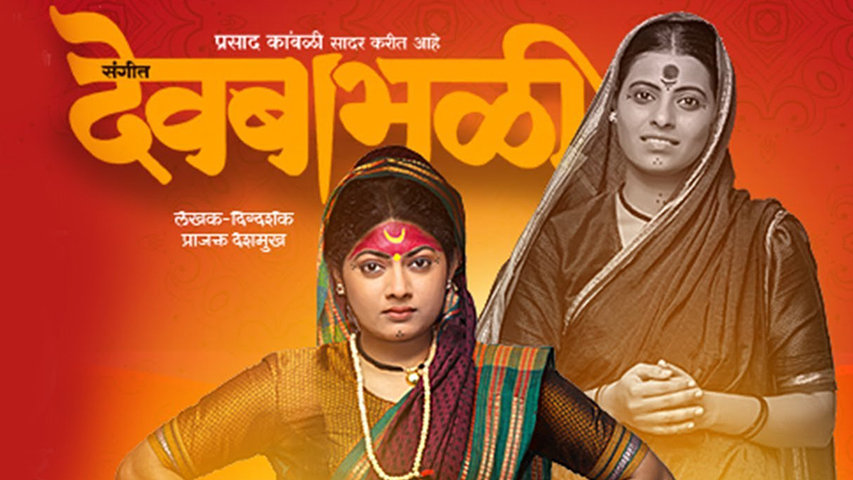
Two Women and A Deity
by Deepa Gahlot September 14 2018, 5:26 pm Estimated Reading Time: 2 mins, 33 secsA man ignores his wife and home because he is devoted to God; and the God he prays to, ignores his husbandly duties because he cares for his devotees. This piquant situation, as seen from the point of view of the two wives forms the very successful, award-winning Marathi play, Sangeet Devbaabhali, written and directed by Prajakt Deshmukh.
The musical has been a part of the Marathi theatre tradition, and the abhangas of Sant Tukaram always strike an emotional chord, but this one is different because it has just two women on stage over the ninety-minute running time.
Avali (Shubhangi Sadavarte), is the dutiful but embittered wife of saint-poet Tukaram, who has neglected his home and given away his wealth in his devotion to Lord Vitthal. Legend has it that when Lord Krishna visited his devotee Pudalik, he was busy serving his parents, so he placed a brick for Krishna to stand on and keep his feet dry. He remained standing there and became Vitthal of Pandharpur. This idol with feet together and arms akimbo is a significant motif in the play.
One day, when a pregnant Avali is looking for her wandering husband to serve him a meal, her foot is pierced by a thorn. She falls unconscious and when she wakes, she is in her home and a strange woman is cooking in her kitchen. Turns out, Vitthal himself had pulled out the thorn and asked his constantly disgruntled (because he cares more for his devotees than for her) wife Rakhumai to take the guise of Lakhubai (Manasi Prabhakar Joshi) and help Avali till she has recovered.

आभाळगप्पा
Both women are unhappy about their situation and their secondary position in the lives of their husbands, but the times dictated that they do not leave the marital home. Avali came from a wealthy family and could have returned to her parents’ house, but a good wife did not abandon her husband and family. The two women bicker, but also form a bond as sisters who understand the pain of the other. There are humorous and touching moments as the two women try to understand and sympathise with each other’s problems and loneliness—an uplifting scene is the one in which Lakubai tells Avali to shed her burdens for a while and enjoy the rain.
As a period play it could not have had a message of female empowerment as it is understood today, but when an ordinary woman and a goddess meet on common ground, it does say something about how woman should stand by each other.
The slim plot is punctuated by the most beautiful songs (written by Deshmukh) sung live by the two actresses and Tukaram abhangs in the voice of Anand Bhate. The music (Anand Oak) is a highlight, but the simple but effective set (Pradeep Mulye) and the evocative lighting add value to the production. Shubhangi Sadavarte and Manasi Prabhakar Joshi have both given excellent performances, enhanced by their soulful singing.




-173X130.jpg)

-173X130.jpg)
-173X130.jpg)

-173X130.jpg)
-173X130.jpg)
-173X130.jpg)